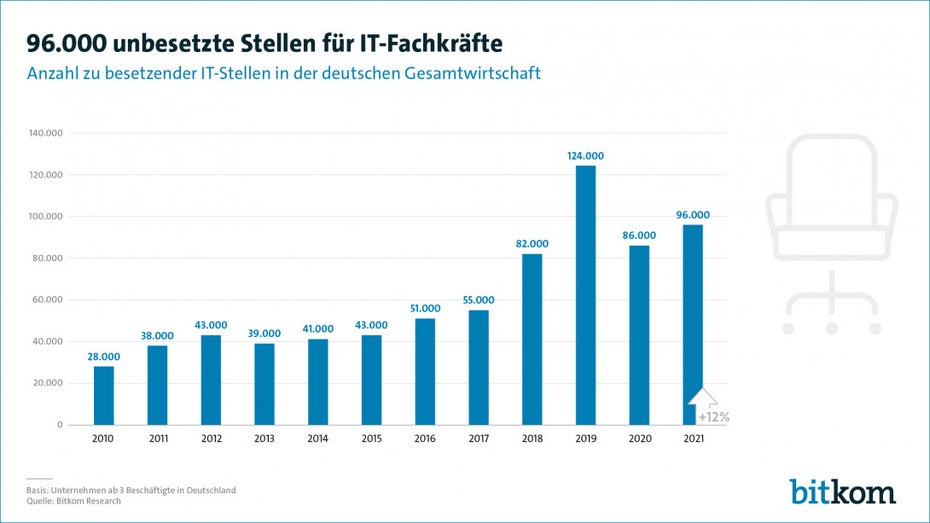The labour market is upside down: while job seekers find themselves in paradise, companies are desperate to find employees and incur high recruitment costs due to the shortage of IT specialists.

Too few applicants for vacancies: IT skills shortage (Photo: Karolina Graboswka -Pexels)
The shortage of IT specialists is worsening. While many are retiring from the labour market due to their age, too few are looking for a job due to the falling birth rate. The care, catering and construction sectors are suffering the most. But other sectors, such as IT, are also complaining about a shortage of skilled labour. Many professions in the technology sector are so specialised that a professional search is like looking for a needle in a haystack. This shortage of skilled labour is becoming ever greater for companies. The career portal Stepstone has quantified the costs for the first time. On average, unfilled vacancies cost a German company €29,000 on a one-off basis.
IT specialists are urgently needed
Depending on the size of the company, the costs for IT specialists can rise to dizzying heights, which are among the highest in comparison to other sectors: according to Stepstone, the costs for companies with up to 50 employees amount to €19,269, €37,301 for companies with up to 250 employees and even €96,228 per vacancy for companies with more than 250 employees. The statisticians at StepStone have factored in the average daily salaries for the duration of the vacancies filled.
StepStone justifies this with the minimum added value that a filled position generates for employers. However, a potential loss of turnover was not taken into account. It is therefore assumed here that the salary corresponds exactly to the value of the work. This clearly shows that the actual costs are significantly higher. It can be assumed that companies are losing turnover because it takes them a very long time to fill a vacancy.
"For this reason, companies must Recruiting processes very quickly and at the same time invest in employee retention in the long term. The challenges are therefore complex," says Ilka Szentkiralyi, Managing Director of the IT recruiting boutique indivHR.
Ms Szentkiralyi places the recruiting process at the centre of her clients' concerns. Application processes must be simplified so that potential candidates go through them quickly and with appreciation.
"Companies need to understand that they are applying to potential employees and not the other way round," continues Ilka Szentkiralyi.
Various statistics show the extent of the IT skills shortage in Germany. Across all sectors, the Number of vacancies for IT specialists increased to 96,000 in 2021. This corresponds to an increase of 12 % compared to the previous year. "Digitalisation is the answer to the pandemic, competition between locations and the climate crisis, but there is a lack of experts to shape and drive it. Incidentally, the shortage of IT specialists is not only affecting the economy, but also the state, which often loses out when it comes to filling IT jobs," says Bitkom President Achim Berg.
Find IT specialists

IT skills gap is widening in Germany: 96,000 job vacancies. (Graphic: Bitkom)
In times of New Work, employers need to rethink. We live in a globalised world and should think that way too. For many jobs, it doesn't really matter where someone is based, as long as there is a certain willingness to travel to team meetings, customer meetings, workshops, etc., for example. "Does it really make sense to leave a position unfilled for months just because no one can be found within a radius of 10-20 kilometres?" - asks Ilka Szentkiralyi.
In times of corona, people have learnt that it is possible to combine work and family better and more deeply. They want to work where they have their friends and family and are willing to go the extra mile at work to do so.
"The number of IT vacancies will continue to rise over the next few years," Ilka Szentkiralyi is certain.
It will become increasingly difficult, IT specialists for themselves. We are already at full employment as far as IT specialists are concerned. The balance of power is shifting and this will not change in the next ten years.
This will inevitably lead to rising salaries and more flexible working models. Those who refuse to recognise this will lose the battle for IT specialists.







